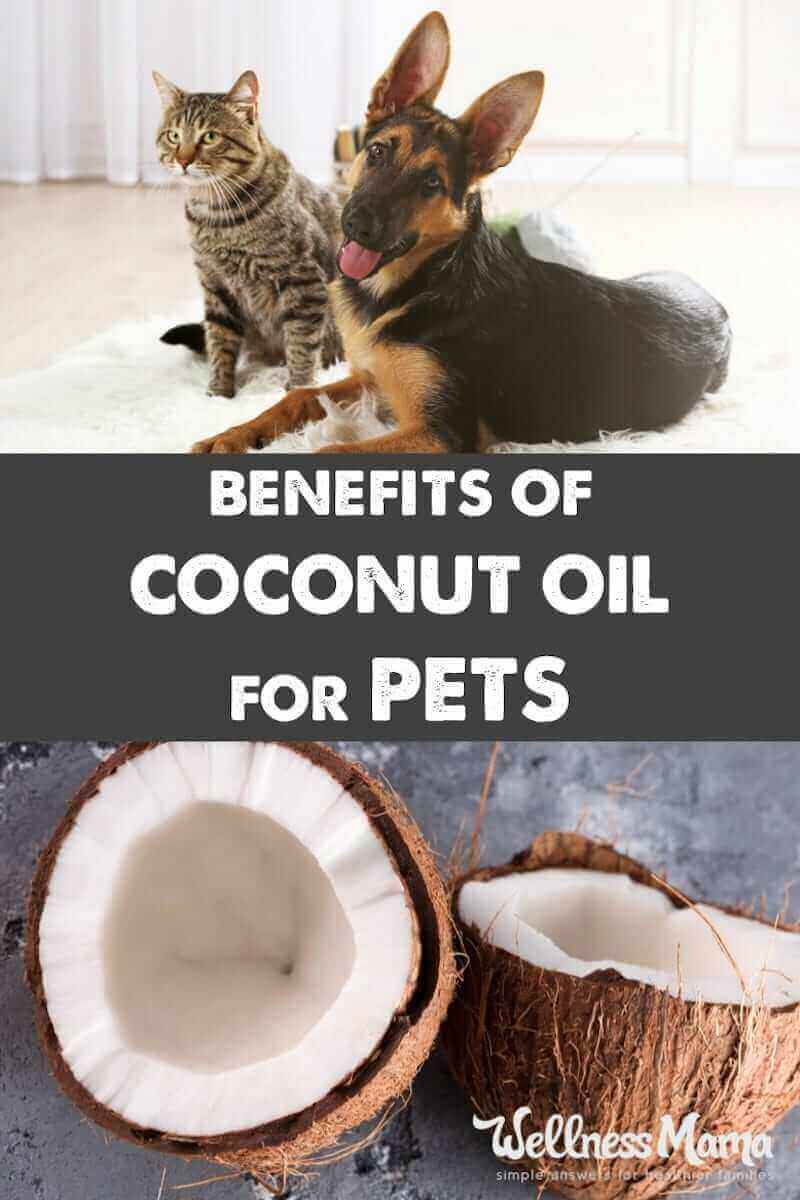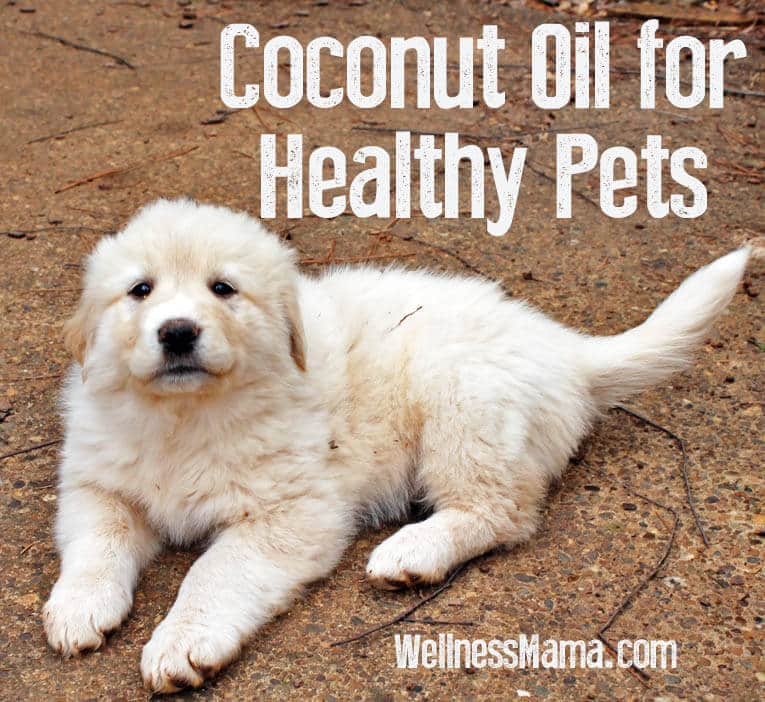I’ve talked at length about how much I love coconut oil and how we use it dozens of different ways at our house. There are some members of our household who also get coconut oil daily, and I haven’t mentioned them much in the past:
Our cat “Peneolope” and our dog “Daisy” (and currently her seven puppies) are also big fans of coconut oil.
Many of the health benefits of coconut oil for humans also apply to animals. From a past post:
- “Coconuts are an excellent source of nutrition and have healthful meat, juice, and oil. The oil is arguably the most nutritious and has many health benefits. Coconut oil is over 90% saturated fat and has antimicrobial, antibacterial, and antifungal properties.
- Coconut oil also has antioxidant properties and it helps in the absorption of other minerals.
- Coconut oil is an incredible source of medium chain fatty acids (MCFAs), which have been shown to have many health benefits.
- Lauric acid in coconut oil in combination with oregano oil, has even been found more effective in fighting the staph bacteria than antibiotics. Lauric acid has also been shown to be preventative against some cancers. Coconut Oil is over 40% lauric acid, the richest source naturally available.”
We’ve used coconut oil with our pets for years. I started researching ways to use coconut oil for pets when our cat went crazy trying to eat food from our plates every time I cooked with coconut oil.
Turns out that coconut oil can help aid pets’ digestion, improve their coats, help prevent infection and more. Carnivorous animals like cats and dogs would have consumed a high amount of saturated fat in the wild and the beneficial fats in coconut oil are a great way to make sure they are getting enough in their diets. Our pets also receive a partially raw meat diet to help keep them healthy.
Doginton Post offers some ways to use coconut oil with pets:
“It can be given internally or applied externally, and can provide remedies for many skin infections. It can disinfect cuts and improve your dog’s general skin and coat condition, making it healthier. Wounds also heal faster with coconut oil, and it helps to deodorize your dog’s skin and clear up some rashes as well.
And unlike most herbal products that are good for your dog’s health, coconut is something that your dog will most probably love to eat. They will most likely gobble up the coconut oil and not be too picky with it. Just as humans can get a bit nutty for coconut, so can our beloved buddies. Mix it with their food – it has cured many picky eaters.
Many vets and researchers today are recommending the regular use of coconut oil for dogs and many other pets as an excellent source of nutrients, which keeps your dog in good health.
The recommended dose is pretty easy; just give a teaspoon of coconut oil per 10 pounds of dog, or you can give a table spoon per 30 pounds. Start with about 1/4 the recommended dosage and build up to the recommended level over 3-4 weeks, as sometimes flu-like symptoms can appear if you hurried it right away.”
How to Use Coconut Oil for Cats and Dogs
We give our pets coconut oil in their food every day and use it externally on their coats. Here’s what we do:
- Our cat gets a teaspoon a day in food (we started with 1/4 of a teaspoon and worked up over a month)
- Our dog (about 55 lbs) gets 2 tablespoons a day in food (we started with 1 teaspoon and worked up over a month)
- To help ward off fleas, both get brushed with coconut oil every few weeks, especially in summer
- For any dry skin or skin issues, we use coconut oil (or honey) on the skin as needed
- Nursing puppies get coconut oil added to first foods when they start eating
What Coconut Oil to Use?
We order our coconut oil from here. Pets seem to actually prefer their pure coconut oil which is also their most economical option. Any unrefined coconut oil will work for pets though. Try it… they’ll love it!
Other Pet Treats and Food
If you want to make homemade treats for you pets, these dog treats and these cat treats use coconut oil and your pets will love them! Or if you are searching for a more natural pet food option that is shipped directly to you, check out Nomnomnow.
Some brands of the best brands of cbd oil for dogs use coconut oil as a carrier too.
Learn more about how we do Natural Cat Care & Holistic Alternatives in this post.
Do you use coconut oil with your pets? How do you use it?



Leave a Reply